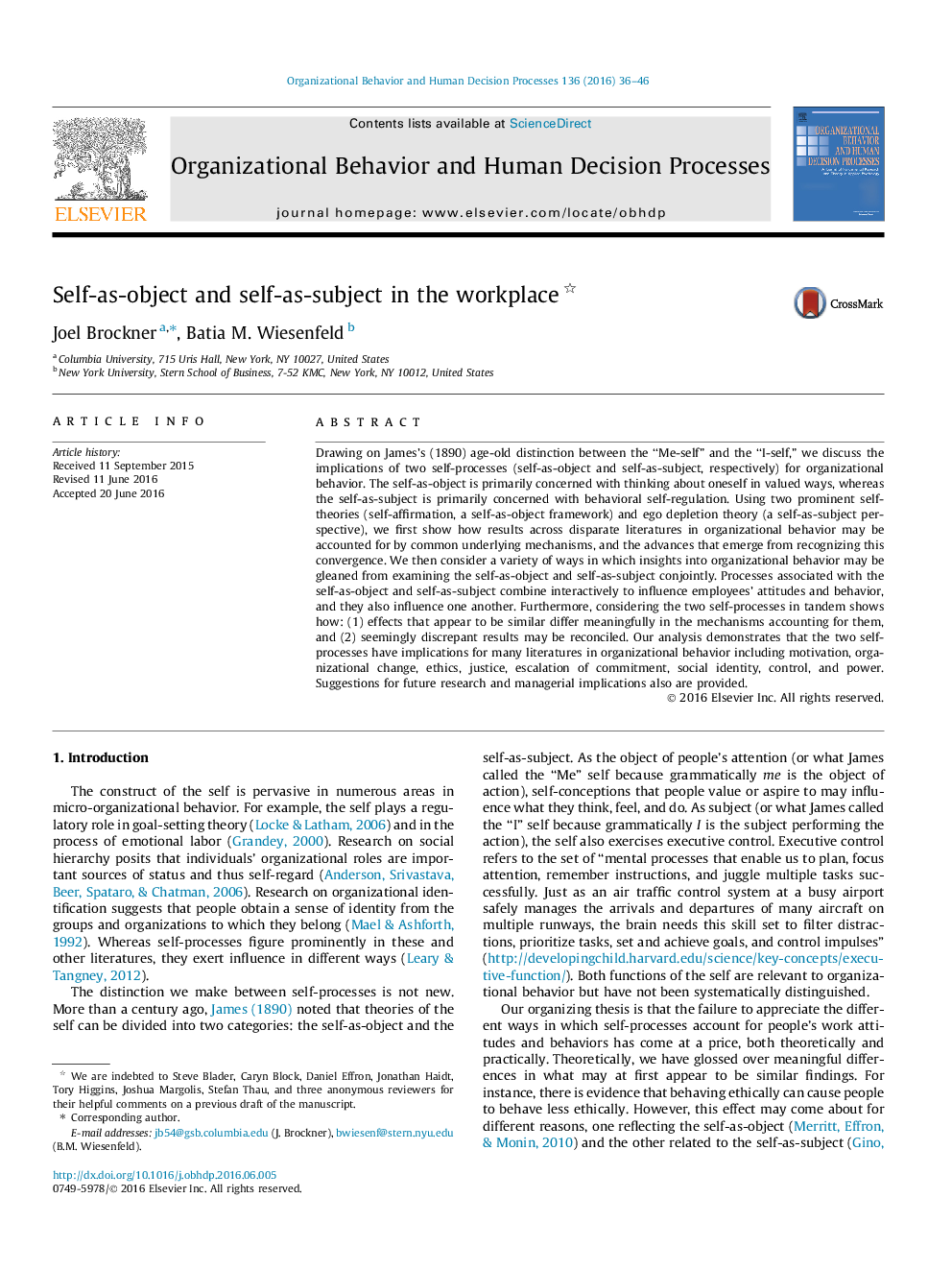| کد مقاله | کد نشریه | سال انتشار | مقاله انگلیسی | نسخه تمام متن |
|---|---|---|---|---|
| 5035357 | 1471845 | 2016 | 11 صفحه PDF | دانلود رایگان |
عنوان انگلیسی مقاله ISI
Self-as-object and self-as-subject in the workplace
ترجمه فارسی عنوان
خود به عنوان شی و خود به عنوان موضوع در محل کار
دانلود مقاله + سفارش ترجمه
دانلود مقاله ISI انگلیسی
رایگان برای ایرانیان
موضوعات مرتبط
علوم انسانی و اجتماعی
مدیریت، کسب و کار و حسابداری
بازاریابی و مدیریت بازار
چکیده انگلیسی
Drawing on James's (1890) age-old distinction between the “Me-self” and the “I-self,” we discuss the implications of two self-processes (self-as-object and self-as-subject, respectively) for organizational behavior. The self-as-object is primarily concerned with thinking about oneself in valued ways, whereas the self-as-subject is primarily concerned with behavioral self-regulation. Using two prominent self-theories (self-affirmation, a self-as-object framework) and ego depletion theory (a self-as-subject perspective), we first show how results across disparate literatures in organizational behavior may be accounted for by common underlying mechanisms, and the advances that emerge from recognizing this convergence. We then consider a variety of ways in which insights into organizational behavior may be gleaned from examining the self-as-object and self-as-subject conjointly. Processes associated with the self-as-object and self-as-subject combine interactively to influence employees' attitudes and behavior, and they also influence one another. Furthermore, considering the two self-processes in tandem shows how: (1) effects that appear to be similar differ meaningfully in the mechanisms accounting for them, and (2) seemingly discrepant results may be reconciled. Our analysis demonstrates that the two self-processes have implications for many literatures in organizational behavior including motivation, organizational change, ethics, justice, escalation of commitment, social identity, control, and power. Suggestions for future research and managerial implications also are provided.
ناشر
Database: Elsevier - ScienceDirect (ساینس دایرکت)
Journal: Organizational Behavior and Human Decision Processes - Volume 136, September 2016, Pages 36-46
Journal: Organizational Behavior and Human Decision Processes - Volume 136, September 2016, Pages 36-46
نویسندگان
Joel Brockner, Batia M. Wiesenfeld,
